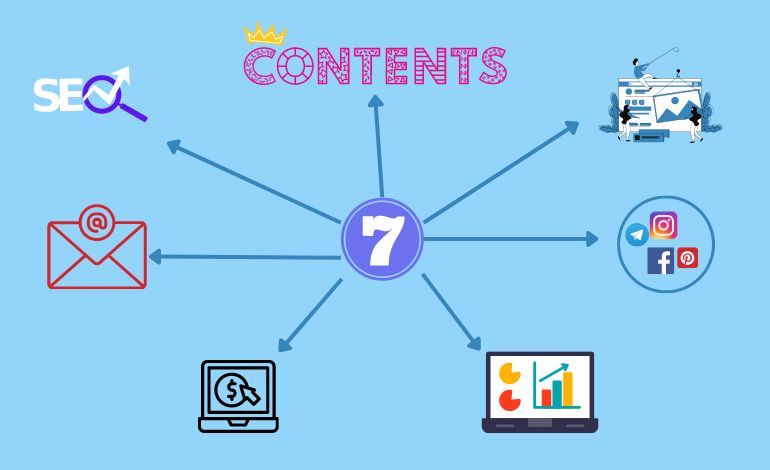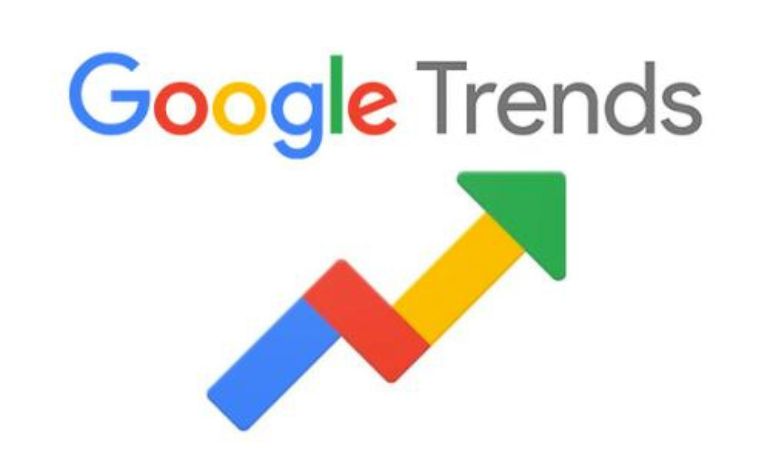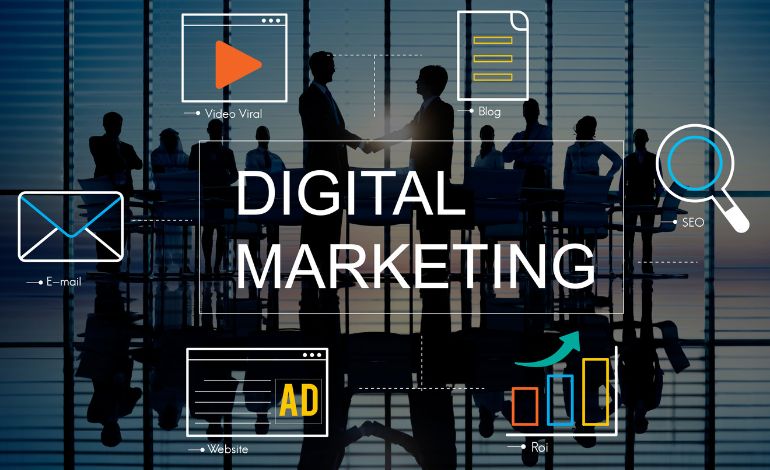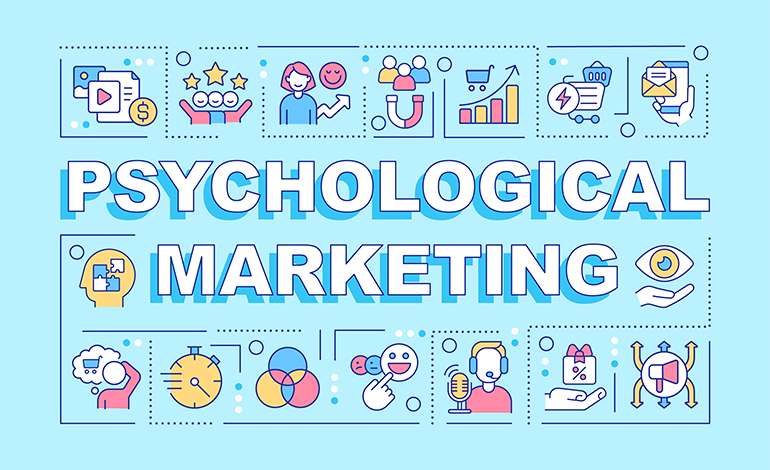In today’s interconnected world, digital marketing has become an indispensable tool for businesses to reach their target audience effectively. With the ever-evolving digital landscape, it is essential to understand the fundamental elements that form the backbone of successful digital marketing strategies.
In this blog, we will delve into the seven crucial elements of digital marketing, exploring each element in detail and shedding light on their significance in driving online success.
1️⃣ Website Design and Development: A well-designed and user-friendly website serves as the cornerstone of any digital marketing campaign. It is the virtual storefront that captures visitors’ attention, engages them, and encourages conversions. A successful website incorporates intuitive navigation, compelling visuals, responsive design, and optimized content to provide a seamless user experience.
2️⃣ Search Engine Optimization (SEO): SEO plays a pivotal role in increasing a website’s visibility in search engine rankings. By optimizing various on-page and off-page elements, such as keywords, meta tags, backlinks, and site speed, businesses can improve their organic search presence. Through effective SEO strategies, websites can attract targeted traffic, enhance credibility, and achieve sustainable long-term growth.
3️⃣ Content Marketing: Content is king in the digital marketing realm. Engaging, informative, and relevant content can captivate audiences, establish thought leadership, and nurture customer relationships. Content marketing involves creating and distributing valuable content across various channels, such as blog posts, videos, infographics, and social media, to educate, entertain, and engage the target audience.
4️⃣ Social Media Marketing: Social media platforms have transformed the way businesses connect with their audience. By leveraging platforms like Facebook, Instagram, Twitter, and LinkedIn, organizations can engage in meaningful conversations, build brand awareness, drive website traffic, and foster customer loyalty. Effective social media marketing requires a well-defined strategy, compelling content, community management, and data-driven insights.
5️⃣ Email Marketing: Email marketing remains a powerful tool for businesses to communicate directly with their customers. Through targeted email campaigns, companies can deliver personalized messages, nurture leads, promote products or services, and build brand loyalty. Building a robust email list, crafting engaging content, segmenting audiences, and analyzing campaign performance are essential elements of successful email marketing.
6️⃣ Pay-Per-Click (PPC) Advertising: PPC advertising enables businesses to display ads on search engines and other online platforms. It provides instant visibility and allows for precise audience targeting. With platforms like Google Ads and social media advertising, businesses can set budgets, bid on keywords, create compelling ad copies, and track conversions. PPC advertising is a cost-effective way to drive targeted traffic, generate leads, and achieve measurable results.
7️⃣ Data Analytics and Measurement: Data analytics forms the backbone of successful digital marketing campaigns. By collecting and analyzing data, businesses gain valuable insights into consumer behavior, campaign performance, and overall ROI. Metrics such as website traffic, conversion rates, engagement levels, and customer acquisition costs help marketers make informed decisions, optimize campaigns, and drive continuous improvement.
Mastering the seven elements of digital marketing is essential for businesses aiming to thrive in the digital age. Website design and development, SEO, content marketing, social media marketing, email marketing, PPC advertising, and data analytics together create a comprehensive framework for achieving online success.
By understanding and implementing these elements strategically, businesses can effectively connect with their target audience, drive conversions, and stay ahead in the competitive digital landscape.








